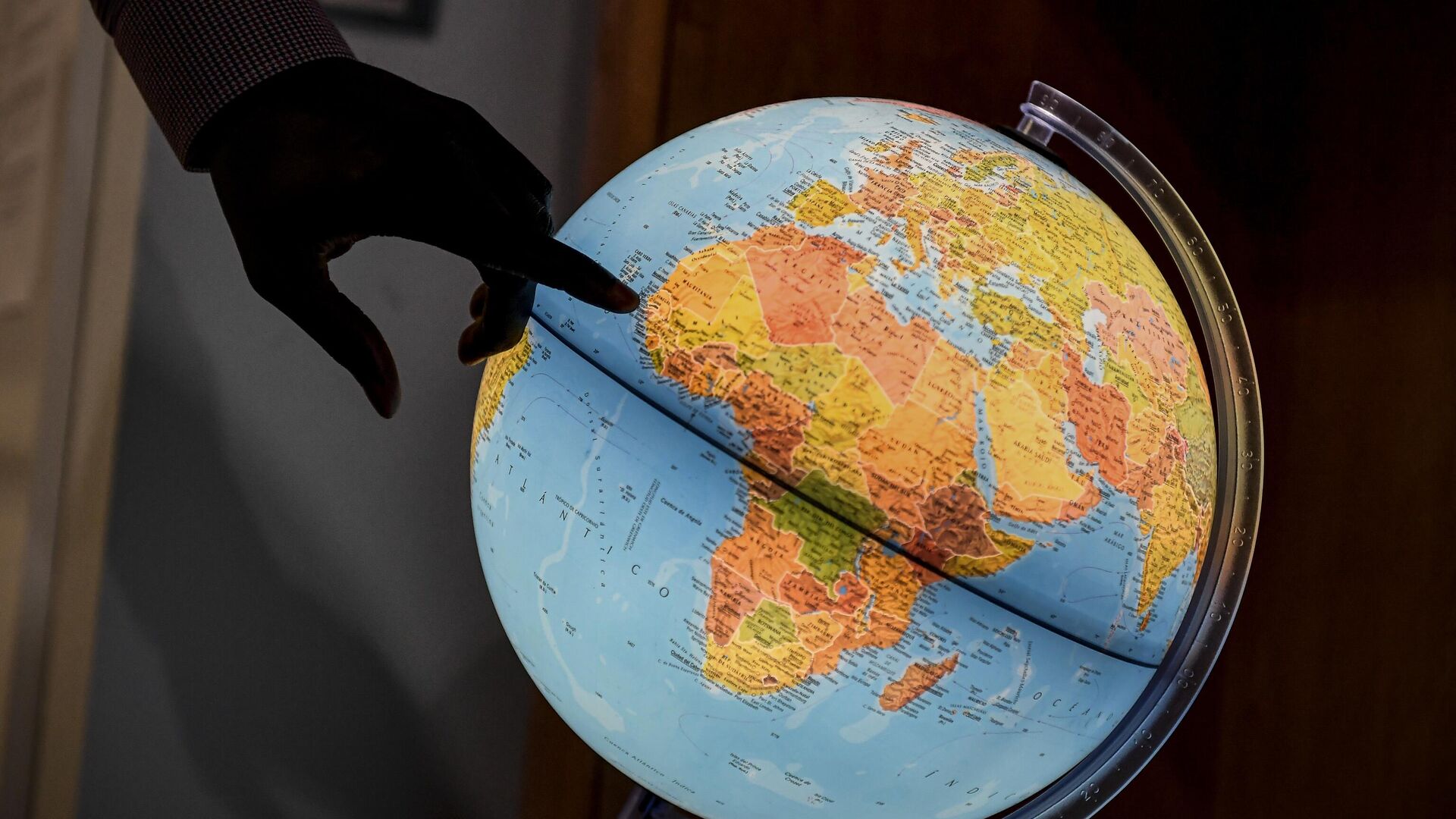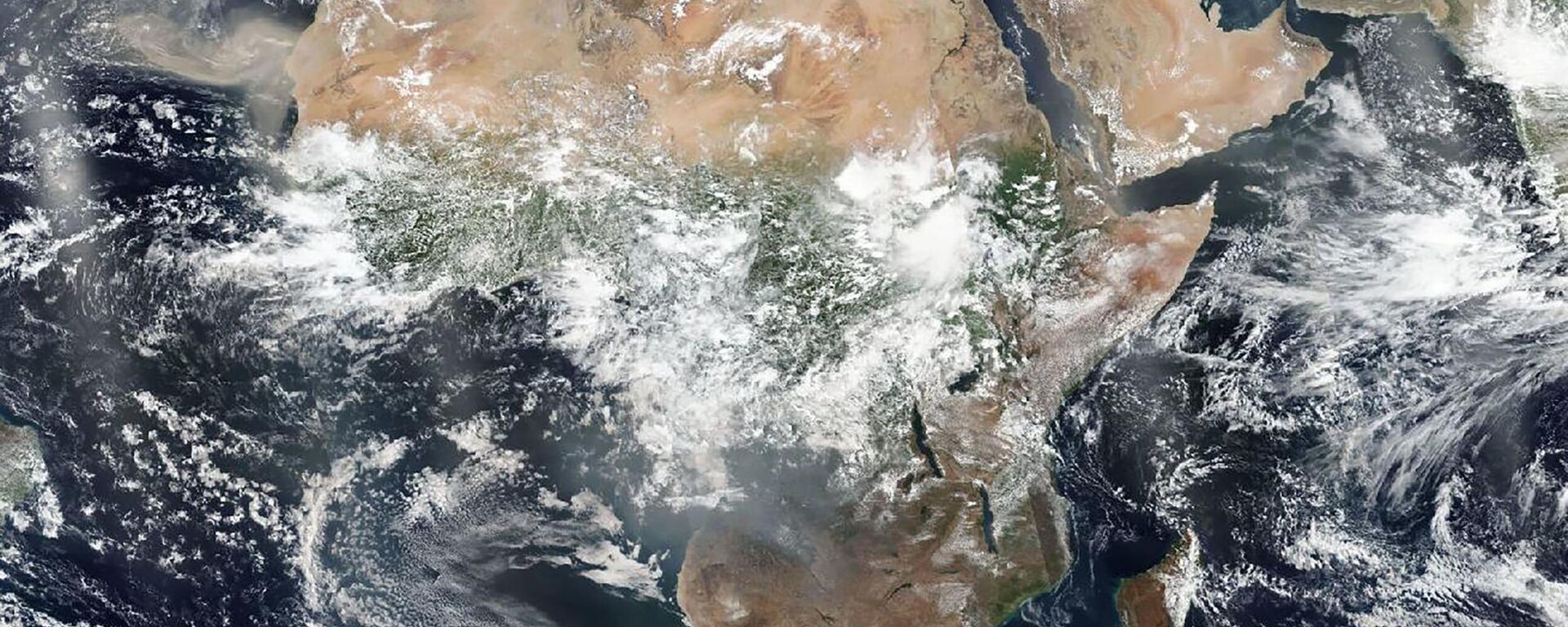https://en.sputniknews.africa/20250226/african-countries-wont-vote-along-old-traditional-lines-at-un-political-scientist-says-1070832446.html
African Countries 'Won't Vote Along Old Traditional Lines' at UN, Political Scientist Says
African Countries 'Won't Vote Along Old Traditional Lines' at UN, Political Scientist Says
Sputnik Africa
Earlier, when the UN General Assembly voted on an anti-Russian resolution on Ukraine, many African countries, including Burkina Faso, Mali, Zimbabwe, and South... 26.02.2025, Sputnik Africa
2025-02-26T15:48+0100
2025-02-26T15:48+0100
2025-02-26T16:30+0100
opinion
russia
ukraine
sputnik africa
brics
france
north atlantic treaty organization (nato)
multipolarity
sovereignty
independence
https://cdn1.img.sputniknews.africa/img/07e8/0b/1c/1069463774_0:160:3072:1888_1920x0_80_0_0_fdfe652bff7dabb7ab4ad9a8c8b99ff6.jpg
Francophone African countries are experiencing a new sense of freedom, shaping their foreign policy based on their own national interests rather than solely considering France's perspective, Zwelethu Jolobe, Associate Professor of Political Science of University of Cape Town, told Sputnik Africa, stressing that the world is changing.Jolobe predicts many other African countries will not vote along old traditional lines because the global balance of power is shifting.He believes that the change in Washington's approach towards Russia is due to a gradual realization that NATO cannot win the conflict in Ukraine. This realization stems from an objective analysis of the situation on the ground, the economic realities of the parties involved, and the overall balance of power in the world.Many African countries today focus their foreign policy on cooperation and collaboration, rather than on threats or enemies, Jolobe said, noting that African nations start to "vote more independently."African countries perceive Western foreign policies as attempts to limit their cooperation and sow divisions, Jolobe said, noting that while African nations are not seeking to avoid engagement, they feel the need for a more equitable relationship than in the past.
https://en.sputniknews.africa/20250226/african-development-bank-identifies-top-ten-fastest-growing-economies-in-africa-1070827171.html
russia
ukraine
france
west
africa
Sputnik Africa
feedback@sputniknews.com
+74956456601
MIA „Rossiya Segodnya“
2025
News
en_EN
Sputnik Africa
feedback@sputniknews.com
+74956456601
MIA „Rossiya Segodnya“
Sputnik Africa
feedback@sputniknews.com
+74956456601
MIA „Rossiya Segodnya“
russia, ukraine, sputnik africa, brics, france, north atlantic treaty organization (nato), multipolarity, sovereignty, independence, west, politics, policy, foreign policy, geopolitics, africa
russia, ukraine, sputnik africa, brics, france, north atlantic treaty organization (nato), multipolarity, sovereignty, independence, west, politics, policy, foreign policy, geopolitics, africa
African Countries 'Won't Vote Along Old Traditional Lines' at UN, Political Scientist Says
15:48 26.02.2025 (Updated: 16:30 26.02.2025) Ekaterina Shilova
Writer / Editor
Earlier, when the UN General Assembly voted on an anti-Russian resolution on Ukraine, many African countries, including Burkina Faso, Mali, Zimbabwe, and South Africa, opposed it.
Francophone African countries are experiencing a new sense of freedom, shaping their foreign policy based on their own national interests rather than solely considering
France's perspective,
Zwelethu Jolobe, Associate Professor of Political Science of University of Cape Town, told
Sputnik Africa, stressing that the world is changing.
"And I think that with the rise of China, the rise of Russia, the rise of India, BRICS as a whole sort of has shown that, in fact, the world order that we're moving towards is one that is more multipolar, which means that it affects how a lot of smaller countries begin to calculate how they should pursue their foreign policy interests," he said.
Jolobe predicts many other African countries will not vote along old traditional lines because the global balance of power is shifting.
He believes that the change in Washington's approach towards Russia is due to a gradual realization that NATO cannot win the
conflict in Ukraine. This realization stems from an objective analysis of the situation on the ground, the economic realities of the parties involved, and the overall balance of power in the world.
"Nobody can deny the fact that in the last three years, one has seen a very gradual, systematic Russian advancement on the front line. Like that is a fact. I mean, you know, whether one likes it or not, that is how things pan out in the real world," the expert said.
Many African countries today focus their foreign policy on cooperation and collaboration, rather than on threats or enemies, Jolobe said, noting that African nations start to "vote
more independently."
"I think that if one looks at especially the evolution of the African Union in the last 15 years, what you find is that it's becoming to guide, I wouldn't say dictate, but guide a lot of African foreign policies in a way towards cooperation and collaboration," he said.
African countries perceive
Western foreign policies as attempts to limit their cooperation and sow divisions, Jolobe said, noting that while African nations are not seeking to avoid engagement, they feel the need for a more equitable relationship than in the past.


